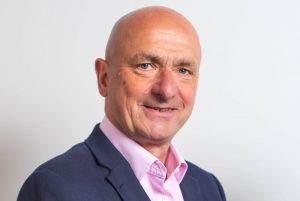Redx excited over potential cancer treatment

REDX, the Liverpool and Cheshire-based drug discovery and development company, says it has identified an exciting potential treatment for hard-to-treat cancers.
The drug, if it progresses through human trials, could be an effective alternative treatment to cancer in the pancreas, ‘triple negative’ breast and head and neck cancers.
The candidate is the fourth to be brought forward from the Company’s innovative development pipeline in the last 12 months. Redx said it had reached development stage in less than two years – significantly faster than industry averages.
It will now progress studies to prepare the program for first human clinical trials.
A statement said: “Redx believes the superior characteristics of the company’s compound could result in a best-in-class drug, making the commercial potential for this new development candidate particularly attractive.”
Chief executive Dr Neil Murray, added: “We’re delighted to be announcing the fourth drug candidate to make it through our development pipeline. Our novel Porcupine inhibitor has the potential to tackle some of the most hard-to-treat cancers and we are particularly excited by the prospects for this target in immuno-oncology.
“We believe this compound has the potential to be a best-in-class therapy that can treat areas of high unmet need. Patients with difficult to treat cancers such as pancreatic, triple negative breast cancer and head and neck cancers could potentially achieve dramatically improved outcomes.”
He added: “We look forward to seeing the program progress over the next 12 months towards first-in-man clinical studies. We have a number of other promising candidates in the pipeline and we’re looking forward to seeing these progress into development in the near future.”
According to the company, triple negative breast cancer refers to a variation of breast cancer that doesn’t have any oestrogen, progesterone or HER2 receptors. It is one of the most aggressive forms of breast cancer, and this type of cancer is most likely to recur. Around 15% of breast cancer diagnoses are triple negative, and it is most prevalent in women who develop breast cancer under the age of 40. Approximately 7,500 new cases are diagnosed every year in the UK.








